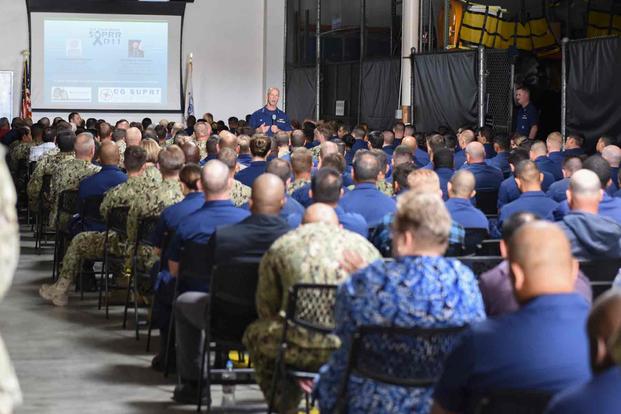‘Mentors sexually harassed staff’: MoD faces more allegations
A survey by trade union Prospect has revealed that more than 120 female civil servants have experienced sexual harassment at the Ministry of Defence or public sector defence agencies.
The survey found that 60% of the 200 female public sector workers in the defence industry who responded had personally experienced problems, while a similar number had witnessed sexual harassment.
About 100 private sector defence workers also responded, with just under half (47%) saying they had experienced sexual harassment.
Last month it was revealed that bullying allegations had soared at the MoD since 2019.
Armed forces
Broken bones causing Army recruitment targets to be missed
EHRC urged to examine MoD handling of sexual harassment claims
Rape and sexual assault in the workplace itself along with unsolicited photographs of genitalia were among the allegations recorded.
Mentors were the subject of some of the allegations of unwanted sexual advances. The poll also recorded insults over women’s appearance and the lack of repercussions for offenders after complaints.
Over the past year, 75% of those who responded had witnessed or experienced sexual harassment at least once a month with around 8% weekly, and almost 4% on a daily basis.
In the MoD about a third (32%) witnessed or experienced such behaviours several times a month (24% in agencies), 5% once or twice weekly (7% in agencies), and 4% on a daily basis (2% in agencies).
Prospect said attitudes were worst in the MoD, with 73% of respondents working there agreeing that behaviour that would be considered toxic and inappropriate in public life was tolerated in the defence sector
The survey included descriptions of some of the behaviour. One MoD civil servant reported: “I have had to physically pull a colleague who was much larger and stronger than me off a female colleague. Because he was so strong I had to scratch and hit him to try and get him off. Throughout this, my female colleague was crying and grasping for my hand. It was quite traumatising for the both of us – we were 19-20 years old at the time.
“When I told my manager about this she discouraged me from reporting it formally, and being so new to the organisation I trusted her so took it no further.”
Another said: “I have had my leg touched in the office by someone who was meant to be a mentor. He also shared inappropriate images and had a nickname about being creepy across numerous departments.”
‘You must be gay then’
An MoD agency worker she had been “personally belittled”, had negative comments about her physical appearance and manner of dress, and was the subject of a “you must be gay then” comment when sexual advances were rejected. “Negative comments and assumptions made about my professional capabilities and competence both to my face and to other colleagues behind my back.”
The union commissioned the survey after 60 senior women at the department wrote to the permanent secretary to the MoD, David Williams, in October with details of sexual assault, harassment and abuse by male colleagues.
After that, Prospect wrote to the Equality and Human Rights Commission (EHRC) asking for an investigation into whether the MoD was failing in its public sector equalities duty in relation to discrimination, harassment and victimisation.
The trade union’s survey was sent to about 3,000 of its members working in the defence industry or public sector, with a 10% response rate.
Sue Ferns, the senior deputy general secretary of Prospect, said bad behaviour “thrives in an environment where it is tolerated. Nothing short of a wholesale culture change is required. It’s time the MoD and other employers worked properly with trade unions to stamp this out.
“It is absolutely clear that this type of toxic behaviour is seen to be tolerated by employers and often left unpunished,” she added.
Coast Guard Sexual Assault Victims Can Now Report the Crime Without Being Punished for Minor Misconduct

The Coast Guard has announced a new policy requiring commanders to disregard "minor" misconduct -- including underage drinking or fraternizing -- by victims or witnesses in sexual assault cases to encourage reporting of such crimes.
The regulation is known as "Safe-to-Report" and the other military service branches under the Defense Department adopted it more than two years ago. The Coast Guard announced the policy Feb. 1 in a servicewide message.
The Coast Guard’s adoption follows a scandal in which the service investigated 102 cases of rape or sexual assault at the U.S. Coast Guard Academy from 1988 through 2006 but concealed the results of the review, dubbed "Operation Fouled Anchor." The investigation and cover-up were exposed last June in reporting by CNN.
Read Next: All 5 Marines Aboard Downed Helicopter in California Were Killed in Crash, Service Says
Now, victims and witnesses in the service -- including active-duty and reserve members, as well as Coast Guard Academy cadets and recruits -- who report a sexual assault will not be subject to discipline for what the policy calls "minor collateral misconduct."
Under the requirement, commanders are to consult with a staff judge advocate to decide whether the misconduct is "minor" or "non-minor," taking into account a number of considerations to determine if that person should be subject to discipline.
Commanders have "considerable discretion" to decide whether an offense is minor, utilizing guidance in the Uniform Code of Military Justice for some infractions that may have been punishable by up to a year in jail if the case went to court-martial, according to the service’s announcement in ALCOAST 050/24.
Such behaviors may include underage drinking; the victim being in a prohibited or unacceptable relationship at the time of the assault; or a violation of a lawful order or regulation such as a curfew, being at an off-limits location, or breaching school standards or barracks or berthing policies.
Commanders also are to take into consideration circumstances such as the victim's age and military experience; whether the suspect was in a position of authority or of higher rank than the victim; whether there was stalking or harassment involved; or whether the misconduct was related to the trauma, such as drinking underage to deal with an assault.
"If the alleged collateral misconduct is deemed minor, then the Safe-to-Report policy applies, and the victim must not be disciplined," the policy states.
If the misconduct is considered "non-minor," the commander retains discretion on whether and when to discipline unless a special trial counsel assumes authority over the alleged collateral misconduct.
Depending on the situation, a commander may take administrative actions to provide services to the victim or witness, such as referring them to substance abuse screening or medical treatment, including mental health care. Commanders also will have the discretion to suspend a victim or witness' access to their duties should they hold a high-level security clearance, while an investigation into the alleged crime is ongoing.
"It may be appropriate to temporarily decertify the victim from critical positions until
appropriate evaluations can be conducted," the policy states.
The policy also allows the Coast Guard Investigative Service to investigate and document alleged misconduct, but it "may impact the commander's actions or response to such misconduct."
The new requirement closely mirrors the Department of Defense's Safe-to-Report policy, which was instituted in November 2021 -- 11 months after it was required by the fiscal 2021 National Defense Authorization Act.
The Coast Guard, which is part of the Department of Homeland Security, was specifically excluded from the language of that legislation.
Coast Guard Commandant Adm. Linda Fagan ordered a top-down review of the service's policies, practices and culture in regard to sexual assault and harassment following CNN's bombshell investigation.
That review found that the service failed to live up to its core values when it mishandled reports of sexual assault and hid the results of the investigation into the cases.
But it stopped short of holding anyone responsible for the investigative failures and cover-up -- topics that were raised in a Senate hearing in December.
In a Feb. 6 press release, Coast Guard officials announced several other initiatives to address the service's handling of sexual assault, harassment "and other harmful behaviors.”
According to the release, Force Readiness Command will establish new training at various points in members' careers. Future leadership conferences will focus on culture within the service and the way ahead for addressing the issues.
"At times, we have failed to connect the workplace experience to our core values. We are committed to rebuilding trust and ensuring every member of our workforce (active-duty, reserve, civilian, auxiliary, and our families) feels empowered to own our culture," Master Chief Petty Officer of the Coast Guard Heath Jones said in a statement.
Among the steps taken in the past few months was the appointment of retired Coast Guard Capt. Laura Collins to serve as the service's first enterprise victim advocate, a position designed to support and represent victims.
Related: Coast Guard Apologizes for Mishandling of Sexual Assaults at Academy

No comments:
Post a Comment